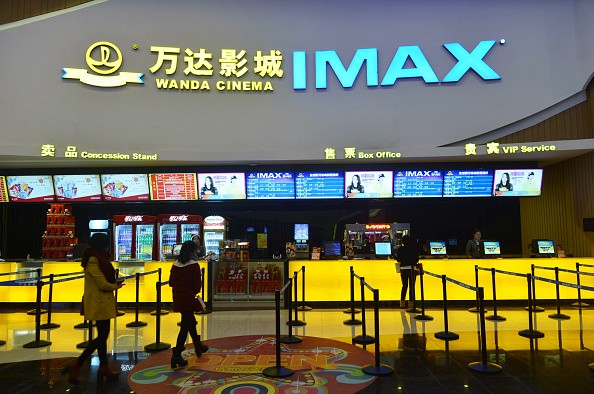Investments made by foreign firms including Dalian Wanda Group in the telecommunication, media and agriculture sectors will be evaluated by the U.S. Government Accountability Office (GAO) following a request by 16 members of the U.S. Congress to review the Committee on Foreign Investment in the United States (CFIUS), for the implications of these investments on national security.
An article published by chinaentertainmentnews.com said that the lawmakers sent the letter to GAO in September, raising its concerns about foreign investments in the said sectors.
The report said the letter specifically mentioned Dalian Wanda Group, the owner of AMC Entertainment and Legendary Entertainment, which is interested in buying additional properties.
According to the U.S. solons, the request to review CFIUS aims to determine whether authorities "have effectively kept pace with the growing scope of foreign acquisitions in strategically important sectors in the U.S." and "especially given the rise in state-owned enterprises and state-controlled enterprises from China and Russia," among others.
In the letter, which was written before Paramount sold a portion of its property to Wanda, the solons expressed their concern about Wanda's "acquisition of major American movie studios, including Legendary Entertainment and Paramount Studios, and the AMC and Carmike theatre chains due to growing concerns about China's efforts to censor topics and exert propaganda controls on American media."
The GAO said it would "initiate an engagement in about four months."
According to Charles Young, Managing Director of Public Affairs at the GAO, no specific start date for the review has been set yet. "That will depend on when our staff experts currently working on existing jobs becomes available," he said.
The lawmakers would like to know if the government has kept pace with its legal and administrative power over foreign acquisition in some important sectors such as the film industry, which it called "soft power grabs."
The congressmen said in the letter: "This evolving nature of possible national security threats requires that both the Executive Branch and the Congress revisit the CFIUS process to determine whether it is fully empowered to address these concerns." They also expressed concern over the degree of foreign ownership, which they said "may pose a strategic rather than overt national security threat."
A Hollywood film industry exec however allayed the fears of the solons. "The Chinese and Wanda are all about making money. Look at the kind of movies we're making now. It's all about tentpoles, sequels, theme parks. . . . If Wanda gets part of that and tries to put Chinese people in movies and it doesn't fit, they'll realize it's a bad move," he said.
"The Chinese may be interested at some point to own distribution to export their movies around the world - not by slamming things down people's throats but doing movies for a global market, " the exec added.
Although Wanda is not a state-owned firm, it has a relationship with government like most Chinese companies, the report said.
Wang Jianlin, Wanda's chairman, who is scheduled to speak in Los Angeles on October 17, has been outspoken about the firm's visions and plans.
In late August, Wang was quoted by Reuters as saying, "My goal is to buy Hollywood companies and bring their technology and capability to China." He added, "If one of the Big Six (studios) would be willing to be sold to us, we would be interested."
If Wanda wants to own a studio in the U.S., it would have to pass anti-trust rules, which prohibit a distributor from owning a local exhibition chain.
The Chinese company owns about 75 percent of AMC theaters in the U.S. and 18 percent of screens in China as the country's largest exhibitor. It also owns Australia's Hoyt. According to Wang, his company will have 15 percent control of global box office revenues and may achieve its 20 percent goal before 2020 as it has completed purchase of Odeon & UCI Cinemas Group and Carmike Cinemas.
In 2015, China's direct investment in the U.S. has reached a record high of $8 billion and as Chinese firms continued to expand overseas, its total outbound direct investment (ODI) hit about 5.5 percent.
A report by the Ministry of Commerce, the National Bureau of Statistics and the State Administration of Foreign Exchange said that the manufacturing sector, rather than entertainment, that attracted the most capital. In 2015, Chinese companies were involved in a total of 97 mergers and acquisitions worth $13.1B. The report added that the country's total non-financial ODI reached about $146 billion in 2015, up 18.3 percent year-on-year.






















